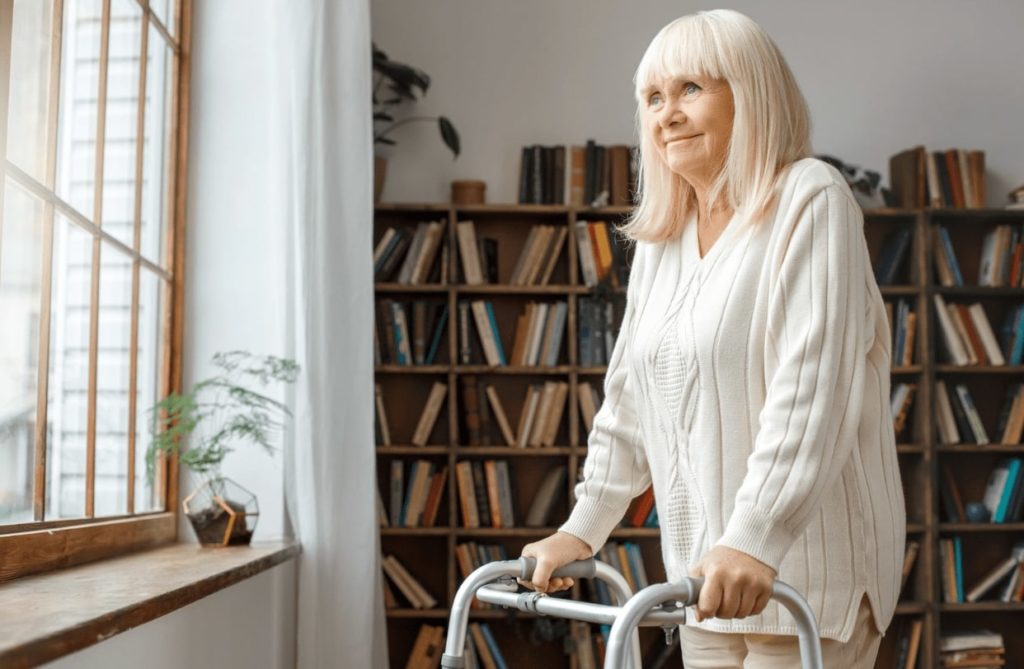When Do You Know It’s Time for Assisted Living?
As our loved ones grow older, we often encounter the challenge of ensuring they receive the necessary care and support while preserving their independence and quality of life. Assisted living communities offer a solution by providing a supportive environment for seniors who need help with daily tasks. Recognizing when it is time for assisted living is crucial for making informed decisions about the future.
Signs that it might be time for assisted living can be quite clear, such as deteriorating health and struggles with everyday activities. Other indicators can be more subtle, like increased isolation, poor nutrition, or caregiver burnout.
At Bentley Commons at Lynchburg, we offer an exceptional assisted living community with compassionate care. We understand the importance of maintaining independence while receiving necessary support for daily tasks, so our vibrant community offers a blend of personalized care, engaging events and comfortable living spaces designed to enhance residents’ quality of life.
Families can rest easy knowing their loved ones are in a safe, supportive community that values their dignity and happiness.
Declining Health
One of the clearest and most worrisome indicators that assisted living may be needed is a decline in physical or mental health. Aging frequently introduces numerous health challenges, and if you or your loved one is facing chronic medical conditions, mobility problems, or cognitive decline, it might be time to consider assisted living options.
In assisted living communities, trained staff can manage medications, assist with daily hygiene and personal care, and regularly monitor health conditions, which can significantly enhance overall well-being.

Difficulty with Activities of Daily Living (ADLs)
Activities of daily living (ADLs) include essential tasks like bathing, dressing, grooming, cooking, and cleaning. When these once-routine activities become difficult or even hazardous to perform independently, it’s a clear indication that assisted living might be necessary.
Assisted living communities are designed to offer residents the support they need to safely maintain their hygiene and nutrition, fostering a sense of independence while enhancing their overall well-being.
Isolation & Loneliness
Isolation and loneliness are significant indicators that it may be time to consider assisted living. Social isolation and loneliness can profoundly impact older adults’ mental and emotional well-being. Social connections are crucial for mental and emotional well-being, and aging individuals often face increased isolation due to mobility issues, loss of friends, or the inability to engage in social activities.
Assisted living communities provide a vibrant social environment with ample opportunities for interaction, group activities, and new friendships, helping to combat loneliness and promote a more fulfilling life.
Safety Concerns
Ensuring safety is crucial for older adults and their families. Regular falls, accidents, or wandering episodes can indicate that living alone is no longer secure. Assisted living communities are designed with safety as a priority, incorporating handrails, non-slip flooring, emergency response systems, and staff trained to offer immediate assistance during emergencies. These features provide peace of mind for both residents and their loved ones.
Caregiver Burnout
Many older adults depend on family members for caregiving support. While family caregivers often show immense dedication, the demands of providing continuous care can result in caregiver burnout, impacting their health and well-being.
If you are a caregiver feeling overwhelmed by these responsibilities, it might be time to consider assisted living. These communities offer professional care, allowing family members to enjoy quality time with their loved ones without the relentless stress of caregiving duties.
Nutritional Decline
Poor nutrition can lead to serious health issues for older adults. If you or a loved one is having difficulty with meal preparation, grocery shopping, or maintaining a balanced diet, it’s a major concern.
Assisted living communities employ experienced dietitians and chefs who strive to meet dietary needs while providing a range of delicious and nutritious meal options. Proper nutrition is essential for maintaining health and vitality in older adults, and assisted living ensures residents receive the necessary nutrition consistently.
Considering Assisted Living
Deciding when it’s time to consider assisted living is a significant and often challenging decision. Recognizing signs such as isolation and loneliness, safety concerns, caregiver burnout, and a decline in nutrition can help guide you toward making the best choice for your loved one’s well-being.
At Bentley Commons at Lynchburg, we understand the importance of providing a safe, nurturing, and engaging environment for older adults. Our dedicated team of professionals is committed to offering personalized care that enhances the quality of life for our residents. From social activities and nutritious meals to around-the-clock support, we strive to create a community where your loved one can thrive.
If you believe it might be time to explore assisted living options, we invite you to visit Bentley Commons at Lynchburg. Schedule a tour today and see firsthand how our community can provide the peace of mind and quality care your family deserves.



